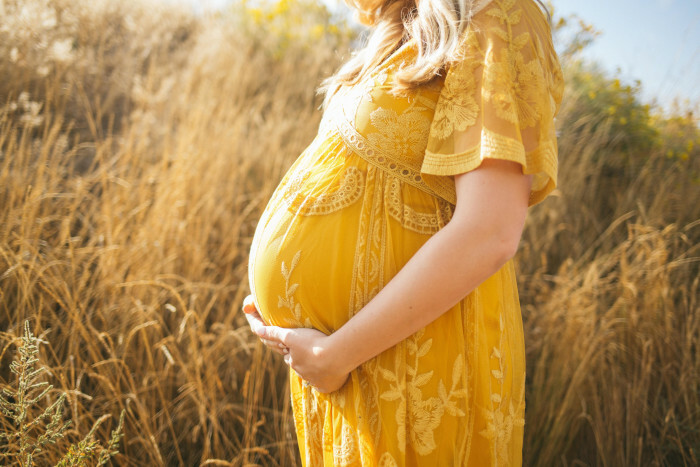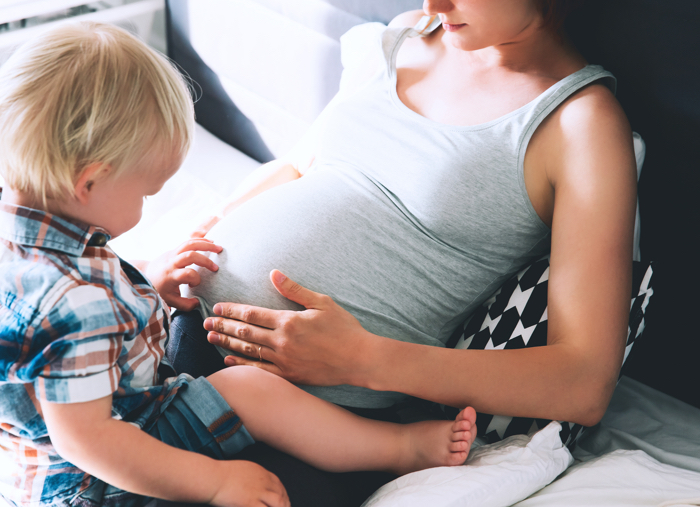Apply to Become a Surrogate in Wisconsin
Your Guide to Becoming a Wisconsin Surrogate
If you’re thinking about becoming a gestational surrogate in Wisconsin and want to learn more about the process, you’ve come to the right place! Here’s everything you should know about the surrogacy process in Wisconsin:
- Surrogacy in Wisconsin
- Surrogate Requirements in Wisconsin
- Surrogate Compensation in Wisconsin
- How Surrogates Match with Parents
- Benefits of Being a Wisconsin Surrogate
- How to Become a Surrogate in Wisconsin

Surrogacy in Wisconsin
Wisconsin is considered to be a surrogacy-friendly state for heterosexual couples, same-sex couples, and single individuals.
What is Surrogacy?
Gestational surrogacy is a form of third-party reproduction in which a woman carries and delivers a baby for someone else. Surrogacy is often used by individuals or couples with fertility or medical issues that prevent them from being able to get pregnant or give birth. It is also commonly used by same-sex male couples or single men who wish to have a biological child. Gestational surrogates, also known as gestational carriers, are not genetically related to the babies they carry. Surrogates become pregnant through in vitro fertilization (IVF), in which embryos are created in a laboratory using eggs and sperm. The eggs and sperm are provided by the intended parents and/or donors.

How does surrogacy work in Wisconsin?
Although Wisconsin doesn’t have any official legislation about paid surrogacy, compensated surrogacy contracts are recognized and enforceable in a court of law, as long as it is in the best interest of the child. As with many other surrogacy-friendly states, it’s required that surrogates and intended parents have their own independent legal representatives to ensure that the rights and interests of all parties are protected.
Pre-birth orders are granted via a court hearing. In most cases, intended parents and surrogates are required to attend these hearings in person, but some courts allow surrogates to attend via telephone.

Surrogate Requirements in Wisconsin
To make sure that the surrogate has a safe pregnancy and gives birth to a healthy baby, women who are thinking about becoming surrogates are required to meet certain qualifications. The requirements to be accepted into the Reproductive Possibilities surrogacy program in Wisconsin and all other states include:
- Being a non-smoker
- Having a BMI between 18-33
- Being between the ages of 21 and 44, although exceptions may be made for experienced surrogates
- Having a healthy reproductive history, including at least one birth, no medical complications, and no more than three c-sections
Surrogate Pay in Wisconsin
Gestational surrogacy is one of the most kind, generous acts that a person can do for another. It is also a physically, mentally, and emotionally demanding experience. It’s only appropriate that surrogates be compensated for the time, energy, and dedication that they put into the process. Surrogates in Wisconsin are paid approximately $55,000 to $60,000. This includes the base fee, reimbursements for expenses, and additional benefits. The base fee for a single fetus pregnancy is $35,000; surrogates who carry multiple fetuses can receive an additional $5,000. Women who have already acted as successful surrogates in the past generally receive higher compensation.
If accepted as a surrogate, the Reproductive Possibilities will be there for you whenever you need us to answer any questions about surrogacy compensation or anything else.

How Wisconsin Surrogates and Parents Are Matched
Surrogates who have been accepted into the Reproductive Possibilities surrogacy program can start the matching process right away. We begin by asking you about your preferences and expectations. This is your chance to tell us what kind of intended parents you want to work with and other related details. We use this information to identify and make matches that are compatible and mutually beneficial. Your matching intended parents may live locally in Wisconsin, another state, or even another country.
After we have identified a potential match, we will schedule a meeting between you and the prospective intended parents. During this meeting, everyone will review and discuss some of the finer points of surrogacy arrangements, such as:
- What your family and social support systems are like
- How often you will communicate and how
- Whether or not you are willing to carry multiples
- Whether or not you are willing to reduce and/or terminate a pregnancy
If all parties find a common wavelength during this conversation and agree to take the surrogacy journey together, then it’s considered a match! Afterward, your Reproductive Possibilities coordinator will facilitate the next steps.
To learn more, visit our surrogacy process page for surrogate mothers.
Are you an intended parent looking to get matched with a surrogate in Wisconsin? Visit our Intended Parents page to get started.

Benefits of Becoming a Surrogate in Wisconsin

How to Become a Surrogate in Wisconsin
If you’re ready to become a surrogate in Wisconsin, we invite you to take the first step and complete the Reproductive Possibilities application. Once submitted, we will evaluate it and determine whether you will be a good fit for our surrogacy program. If so, one of our coordinators will connect with you directly to discuss your application in greater detail. During this conversation, we will touch on many details, including your medical history, background, and criminal history (if applicable).
If at any point you have any questions about becoming a surrogate in Wisconsin or the surrogacy process itself, our team will be there to provide guidance and support at every step of the way.
